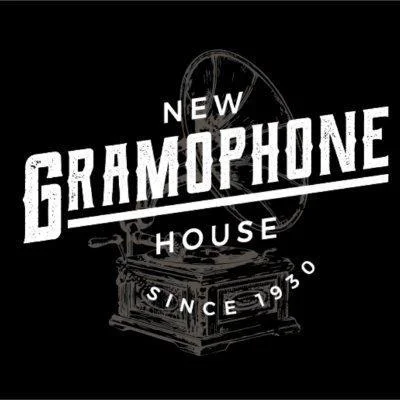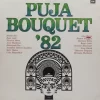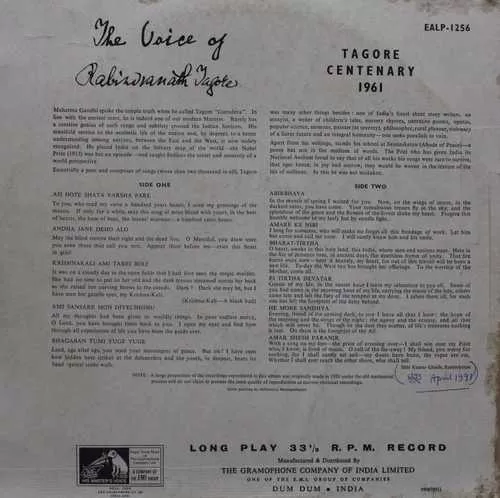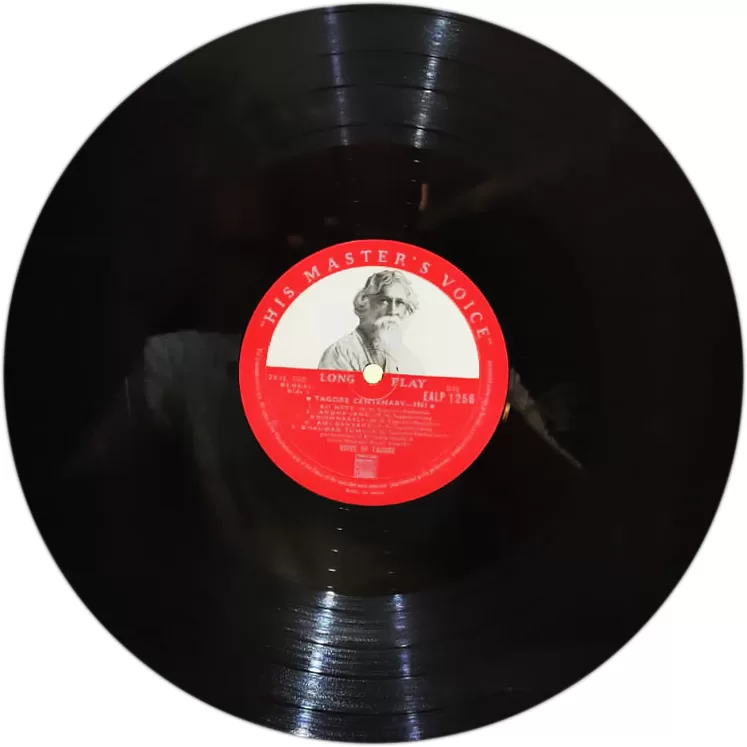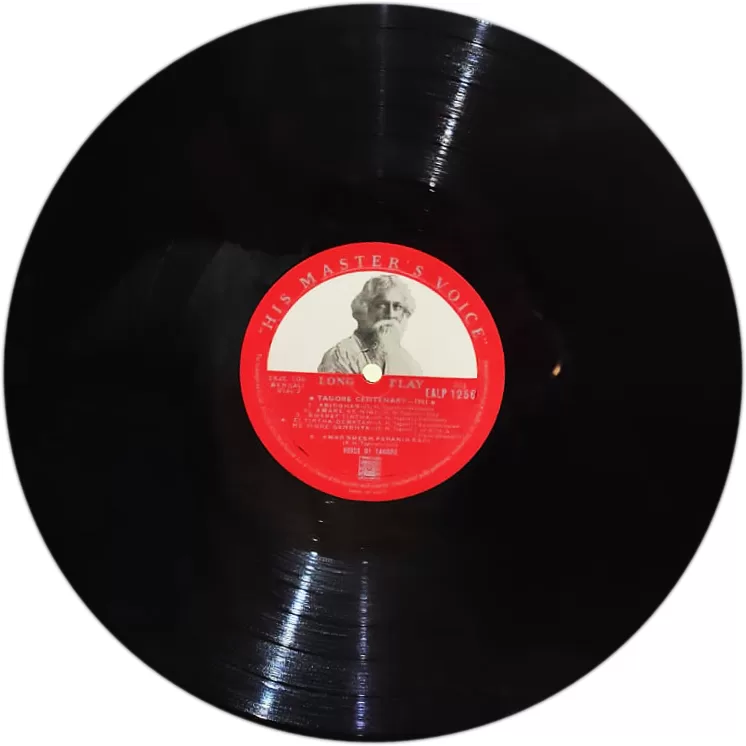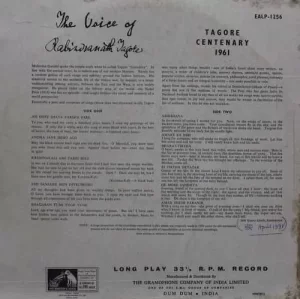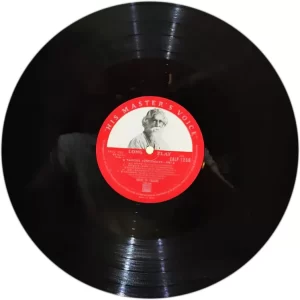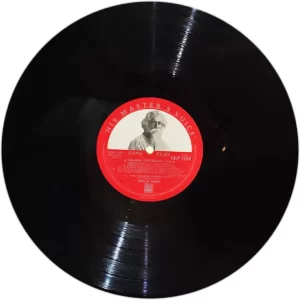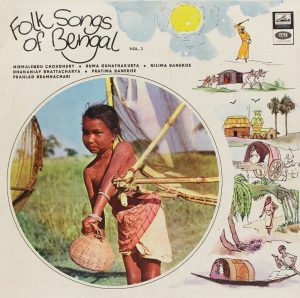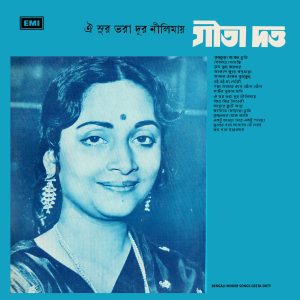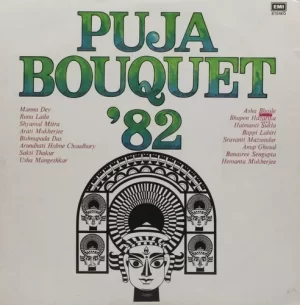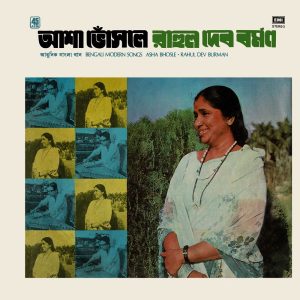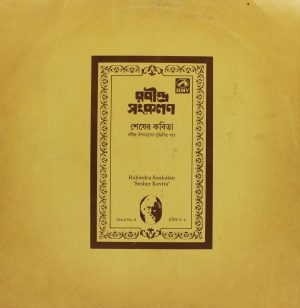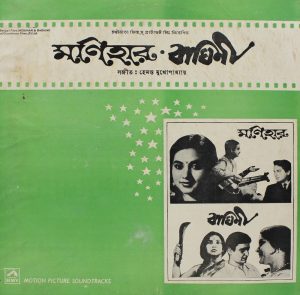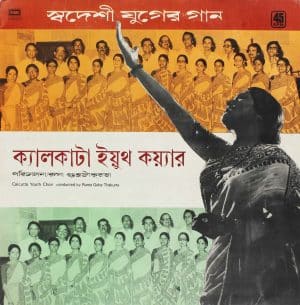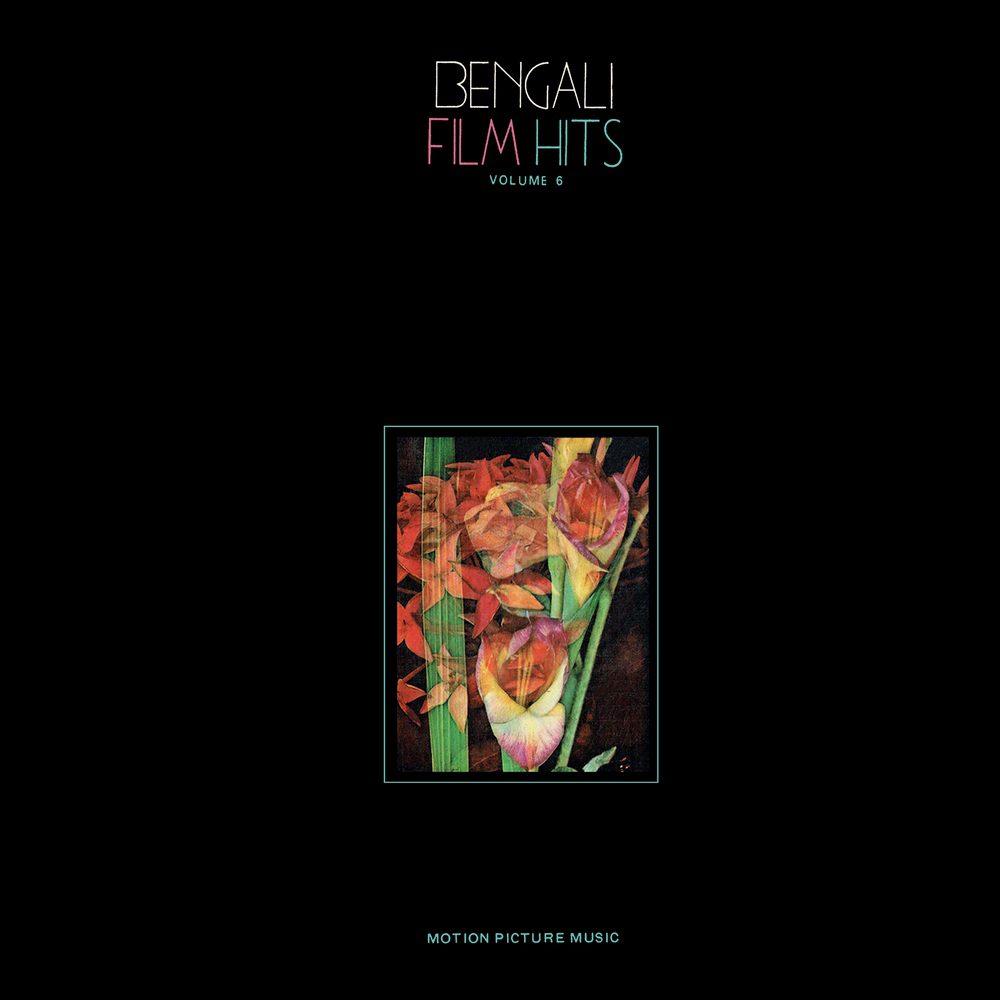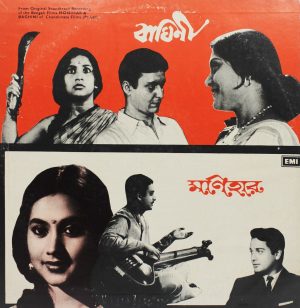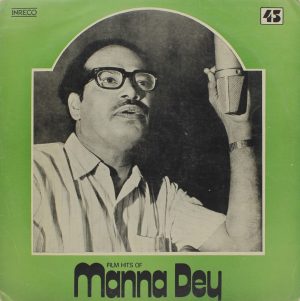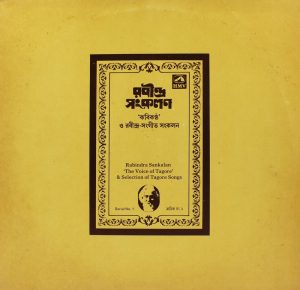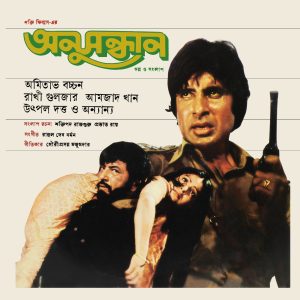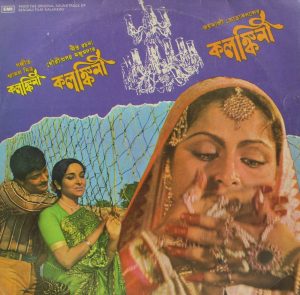No products in the cart.
Rabindranath Tagore – The Voice Of Rabindranath Tagore – (Tagore Centenary 1961) – EALP 1256 – (Condition 90-95%) – LP Record
4,500.00₹
Sales 0
Out of stock
SKU: EALP 1256
Category: Bengali Vinyls 12″ Used
Tag: Rabindranath Tagore - The Voice Of Rabindranath Tagore - (Tagore Centenary 1961) - EALP 1256 - (Condition 90-95%) - LP Record
Have a Query?
| Rabindranath Tagore – The Voice Of Rabindranath Tagore – (Tagore Centenary 1961) – EALP 1256 – (Condition 90-95%) – LP Record | |
| Rabindranath Tagore FRAS (/rəˈbɪndrənɑËÂt tæˈɡɔËÂr/ (About this sound listen); Bengali: [robind̪ronat̪ʰ ʈʰakur]), also written RavÄ«ndranÄÂtha ṬhÄÂkura (7 May 1861 – 7 August 1941),sobriquet Gurudev,[c] was a Bengali polymath who reshaped Bengali literature and music, as well as Indian art with Contextual Modernism in the late 19th and early 20th centuries. Author of Gitanjali and its “profoundly sensitive, fresh and beautiful verse”, he became in 1913 the first non-European to win the Nobel Prize in Literature. Tagore’s poetic songs were viewed as spiritual and mercurial; however, his “elegant prose and magical poetry” remain largely unknown outside Bengal. | |
| Record Details | |
| Title | Rabindranath Tagore – The Voice Of Rabindra Nath Tagore – (Tagore Centenary 1961) – EALP 1256 |
| Singer | Rabindranath Tagore |
| Lyrics | Rabindranath Tagore |
| Genre | Private Songs |
| Language | Bengali |
| Releasing Year | 1961 |
| Label | HMV |
| Made In | India |
| Manufacture | The Gramophone Company Of India Ltd. |
| Serial No. | EALP 1256 |
| Side One | |
| · Aji Hote Shata Varsh Pare | Rabindranath Tagore |
| · Andha Jane Deho Alo | Rabindranath Tagore |
| · Krishnakali Ami Tarei Boli | Rabindranath Tagore |
| · Ami Sansare Mon Diyechhinu | Rabindranath Tagore |
| · Bhagaban Tumi Yuge Yuge | Rabindranath Tagore |
| Side Two | |
| · Abirbhava | Rabindranath Tagore |
| · Amare Ke Nibi | Rabindranath Tagore |
| · Bharat – Tirtha | Rabindranath Tagore |
| · Ei Tirtha Devatar | Rabindranath Tagore |
| · He More Sandhya | Rabindranath Tagore |
| · Amar Shesh Paranir | Rabindranath Tagore |
| Specification | |
| Size | 12 Inches |
| Speed | 33 RPM |
| Record Condition | 90-95% |
| Cover Condition | Excellent |
Views: 332
| Weight | 350 g |
|---|---|
| Dimensions | 13 × 13 × 1 in |
| Singer | |
| Lyrics | |
| Album Releasing Year | |
| Language | |
| Label | |
| Genre | |
| Size | |
| Speed | |
| Records condition |
Related products
New
Bengali Vinyls 12″ Used
Folk Songs Of Bengal Vol. 2 – ECLP 2403 – (90-95%) – HBL – Bengali LP Vinyl Record
4,500.00₹
Bengali Vinyls 12″ Used
Geeta Dutt – Bengali Modern Songs – PMLP 1521 – (85-90%) – CR – Bengali LP Vinyl
3,000.00₹
Bengali Vinyls 12″ Used
Puja Bouquet 82 – ECSD 41510 – (Condition – 85-90%) – LP Record
2,500.00₹
Bengali Vinyls 12″ Used
Asha Bhosle & Rahul Dev Burman – S/45NLP 2038 – (85-90%) – CR – Bengali LP Vinyl
3,200.00₹
Bengali Vinyls 12″ Used
Rabindra Sankalan – ‘Sesher Kavita’ – (Serial No. 6) – BMLP 2007 – (90-95%) – Bengali LP Vinyl
2,700.00₹
Bengali Vinyls 12″ Used
Monihar & Baghini (Bengali Films) – ECLP 3419 – (90-95%) – Bengali LP Vinly
2,700.00₹
Bengali Vinyls 12″ Used
Calcutta Youth Choir – S45 NLP 2020 – (90-95%) Bengali LP Vinyl Record
2,700.00₹
Bengali Vinyls 12″ Used
Bengali Film Hits Vol 6 – EALP 2002 – (85-90%) Bengali LP Vinyl Record
2,400.00₹
Bengali Vinyls 12″ Used
Monihar & Baghini (Bengali Films) – ECLP 3419 – (90-95%) – Bengali LP Vinyl Record
2,700.00₹
Bengali Vinyls 12″ Used
Manna Dey – 2628 7040 – (Condition – 85-90%) – Bengali LP Vinyl Record
2,400.00₹
Bengali Vinyls 12″ Used
Rabindra Sankalan – The Voice of – (Serial No. 1) – BMLP 2001 – (90-95%) – Bengali LP Vinly
2,700.00₹
Bengali Vinyls 12″ Used
Anusandhan – Barsaat Ki Ek Raat – Bengali Film – PMLP 1011 – (80-85%) – CR – Bengali LP Vinyl
2,500.00₹
Bengali Vinyls 12″ Used
Kalankini – Bengali Film – ECLP 3420 – (90-95%) – Bengali LP Viny
2,700.00₹
Available at a future date12:00 am.
